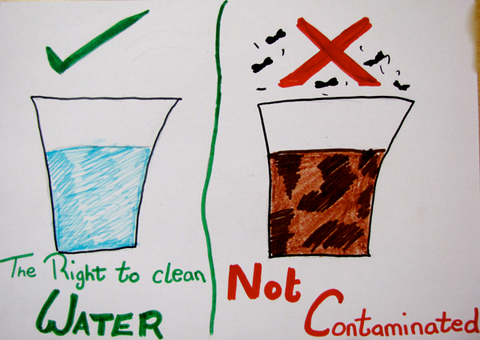We have the right to clean water, or do we?
Share
One of the primary goals of the World Health Organization is that "all people, whatever their stage of development and their social and economic conditions, have the right to access an adequate supply of safe drinking water."
With more and more links between cancer and chemicals found in their drinking water, many people are becoming concerned. Did you see Erin Brokovich?! Yes,there are federal law guidelines regarding "safe" levels in the water, but there are also increased concerns over what is actually "safe".
Two common chemicals that are added to water are chlorine and fluoride. Chlorine which is the most popular disinfectant for drinking water produces trihalomethanes, haloacetic acids, chloroform and bromoform.
THM's are chemicals formed when chlorine reacts with bacteria and other ingredients in the water. The American Journal of Public Health published an article regarding a 1992 study linking THM's in water to incidences of rectal, bladder and pancreatic cancer.
The main source of exposure to Trihalomethanes in the United States is from (you guessed it), drinking tap water.
The trihalomethanes and haloacetic acids have demonstrated carcinogenic activity in laboratory animals. There are multiple studies showing a statistically increased risk of colon cancer with exposure to chlorinated drinking water.
For mothers to be, one study in Italy reported lower average birth weights among mothers older then 30 years who were consuming chlorinated water. In Nova Scotia, Canada - one study showed an increased risk of stillbirth was reported for women who were exposed to water containing more then 100 µg of THMs per litre (Dodds et al., 1999).
Chloroform was detected in 11 out of 13 beverages sampled in Ottawa, Ontario at a maximum conentration of 14.8 µg/kg in a fruit drink (Environment Canada & Health Canada, 2001). Bottled water prepared from a chlorinated municipal water supply may also contain THMs.
Using a home water filter system that filters chlorine is perfect for removing these unwanted chemicals from your drinking water.
http://www.who.int/water_sanitation_health/dwq/chemicals/THM200605.pdf
